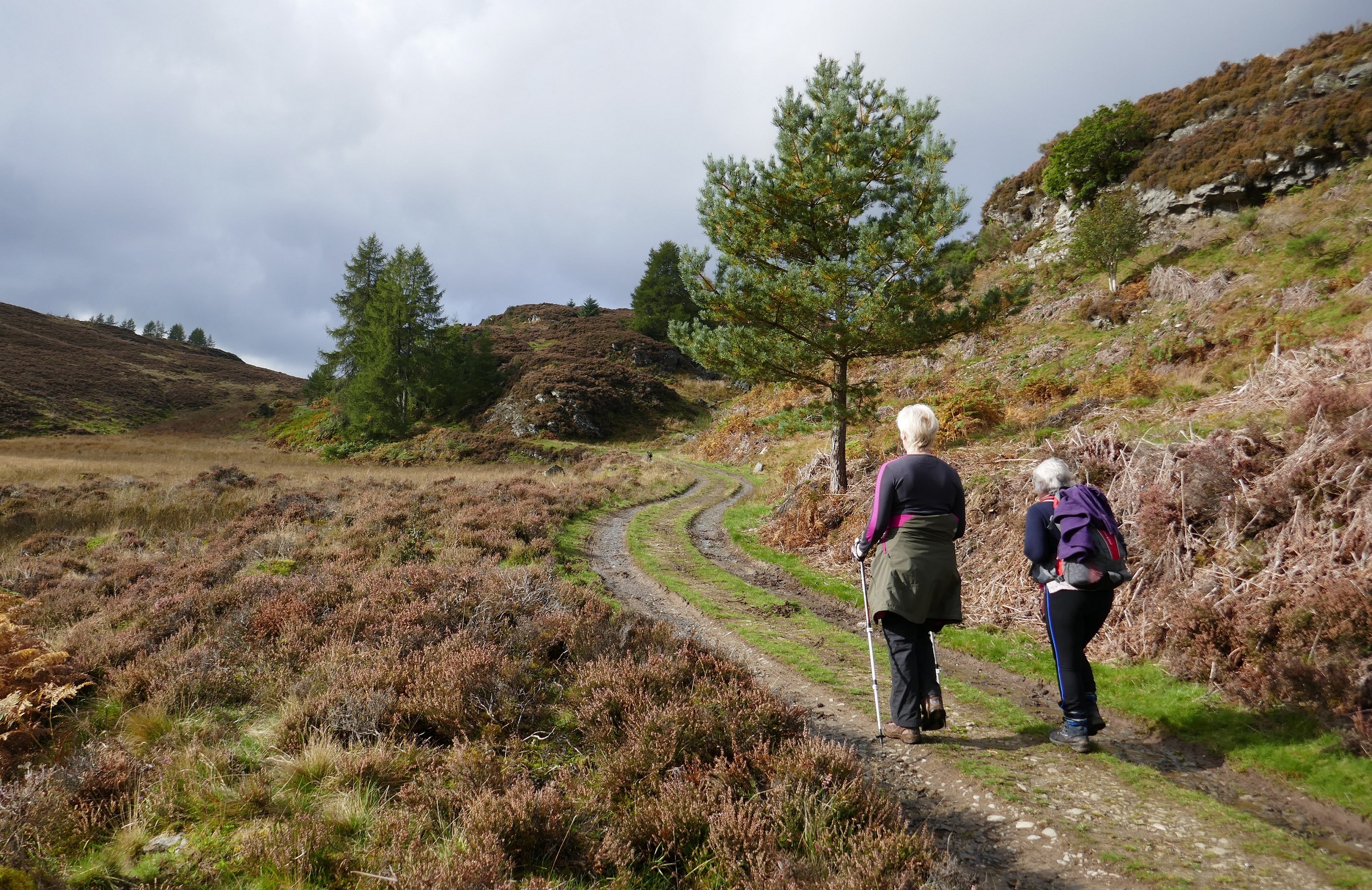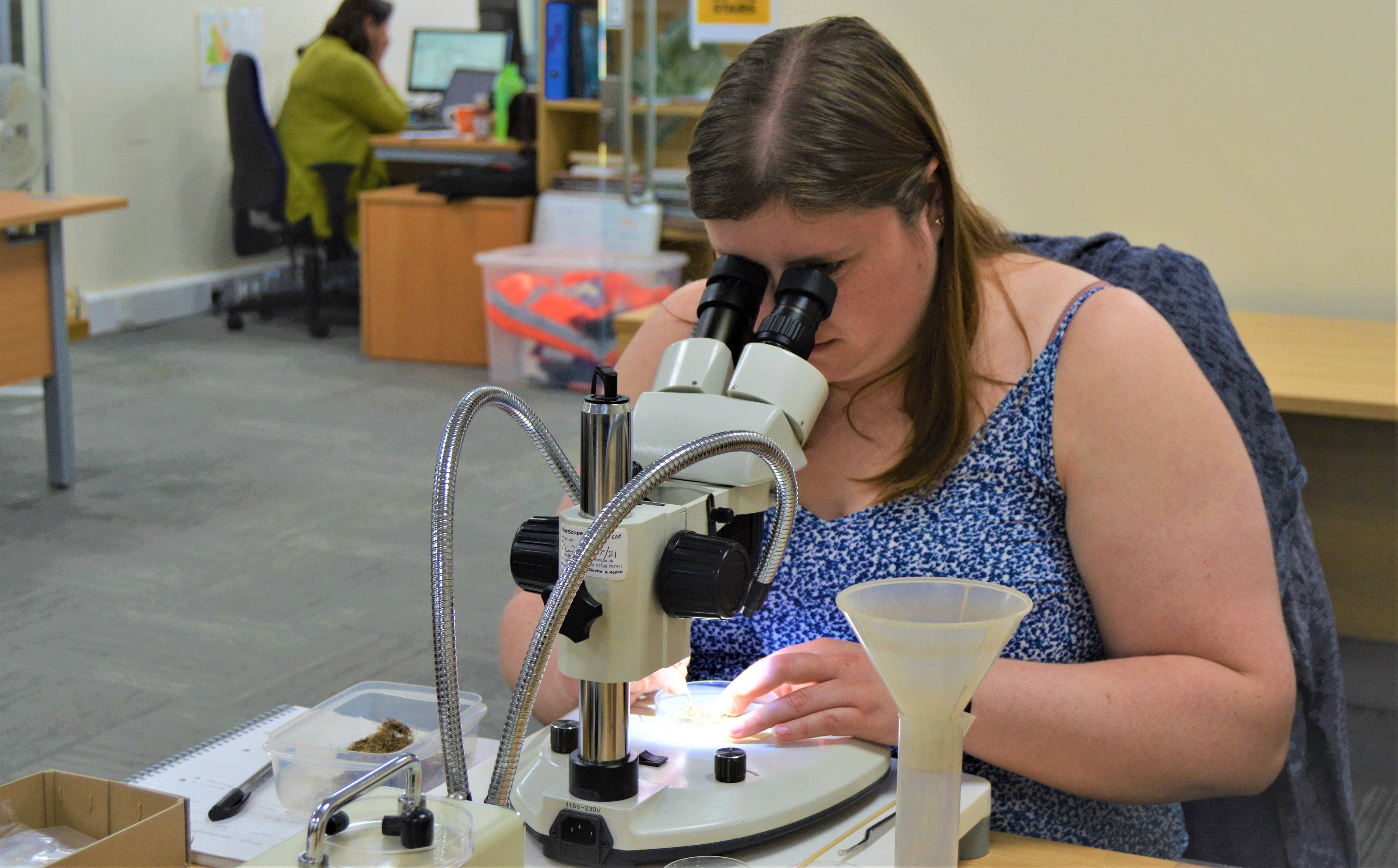
Want to help protect our natural environment? Passionate about helping others understand the beauty around them? Then a career in environmental conservation may be for you.
People working in environmental conservation help look after the landscapes, habitats and species of the UK and Ireland’s hugely varied rural, costal, marine and urban areas. As well as offering spaces for rest and relaxation, our landscapes and habitats are important ways we can all find out more about our environment. They help people learn about sustainable land use, biodiversity and climate change, inspiring us to work together to solve the challenges our environment faces by reinstating woodlands, conserving habitats and protecting our coastline.
Environmental conservation offers a host of exciting career options for people who want to protect the environment and help other people enjoy it in a sustainable way. Whether you want to work in your local park, a nature reserve, our beautiful countryside or work on conservation around the world, if you’re interested in science, like working outdoors or want to help find answers to the big environmental questions we face, this diverse industry may the place for you.
Over 60,000 people are employed in conservation and environmental roles in the UK, with a further 190,000 engaged as volunteers
Between 2000 and 2019, the amount of time volunteers contributed to conservation activities in the UK increased by 61%
The UK Government has committed to protect 30% of the UK’s land by 2030 to support biodiversity
The report 'Ireland’s Environment: An Integrated Assessment 2020' outlines the state of Ireland’s environment at a strategic and national level, and planned responses to current and emerging environmental issues
There are a wide range of diverse career opportunities available to you in the Environmental Conservation sector.
Environmental Conservation
Environmental Conservation
Environmental Conservation
Senior Ranger at Holyrood Park Jamie Hamilton talks about his job with Historic Environment Scotland.
Julia Duncan works at Atholl Estates as a Countryside Ranger - here she is talking about her job and how much she enjoys doing it.

Emma is an Assistant Environmental Officer for Cotswold Archaeology in Buckinghamshire.
“The company I work for is one of the top suppliers of professional archaeology and heritage services in the UK, employing over 200 professional staff to provide expert, bespoke solutions for both private and public sector clients nationwide.
I have been with them for six years. Before that, I was a steward for Historic Environment Scotland in Orkney where I also did my masters in Archaeological Practices with the University of the Highlands and Islands.
After leaving school I took a year out and did some extra Highers at Inverness College UHI before committing to a university course. I then went on to do a BSc honours degree in Archaeology and Environmental Studies, and an MSc degree in Archaeological Practices with a focus on archaeobotany,
I really loved doing my undergraduate degree as it featured a variety of different sectors that are involved in things like conservation, and also let me explore my love of history and archaeology by having some modules focussed on that. For me, it was the best of both worlds. I was also given the opportunity to study abroad in Canada for a semester which was one of the best experiences I have ever had.
The masters course really allowed me to gain all the practical knowledge and experience required to get a job in the archaeology sector. I was also able to focus my practical degree on archaeobotany where I worked and studied alongside my masters supervisor, Dr Scott Timpany, who really helped me become competent at species ID’s for seeds and also did some basic training on wood identification.
These qualifications have really helped my career, as without my masters in Archaeological Practices I would not have been taken on by Cotswold Archaeology. At the time, they were specifically looking for someone with environmental experience to hire so that they could train them up as an in-house specialist. With my background in archaeological assemblages from Orkney, Beauly and some parts of England that I did during my masters, I was able to successfully apply for the job. I initially started off as a post-excavation processor, then moved up as an environmental archaeologist where I started to do more environmental archaeobotanical reports. Here I progressed and became an assistant environmental officer where I take the lead in processing samples, writing up environmental reports and liaising with external specialists.
Initially, I thought that I might go into marine conservation as I have always had a love for marine life. It was when I studied abroad in Canada that I really fell in love with botany due to a very enthusiastic biology professor. She gave me the love that I have for botany today. When I came back from Canada I made the decision to move to Orkney from Inverness so that I could get the hands-on experience with archaeological assemblages to make sure that this is what I wanted to do. When I saw my first waterlogged sample under the microscope I was hooked and have not looked back ever since.
My morning consists of e-mail correspondence to project managers discussing work that needs to be completed on their projects. I then set up my microscope and get to work on environmental assemblages that can range from the Bronze Age to Post-Medieval. During this time, I am assessing environmental assemblages and identifying any molluscs and plant remains such as seeds, grains and tubers, and compiling a report as to how these items relate to the wider landscape. I do this in several different levels of details depending on the project requirements. For evaluations I do a quick assessment and suggest areas that could be focussed on for further work. For post-excavation assessment I do a more detailed assessment of the plant remains and locate comparison sites where the assemblages are similar. This means that I can link certain assemblages to the wider landscape and also look at different research questions outlines by the region. For analysis reports, I identify each seed and grain to their exact species and make exact counts. This is the most detailed report and takes the most amount of time.
My job allows us to form an image of past environments that may have changed over time. A good example of this is if you imagine a sandy beach. If I assess a sample from it, I can state whether this beach actually used to be a woodland area or arable pasture by the plant remains and molluscs identified within the assemblage. This then helps us to see how the world looked in the past and demonstrates how land use has changed, whether it be from human influence or environmental factors. I can also relay what types of crops and foods people used to eat and how they cultivated them. Which again, helps us to understand certain aspects of our past that may have been mis-understood before.
The kind of skills I need in my work are the ability to identify seeds to species as well as molluscs, report writing abilities, skills in communication and organisation and a wiliness to continue learning. Every day I still learn something new.
The best thing about my job is the diversity of what I do. I also really love identifying all the different plant remains and molluscs. It makes me feel connected to the past.
It takes a lot of determination and hard work to succeed, but don’t let people make you think you can’t do it.”